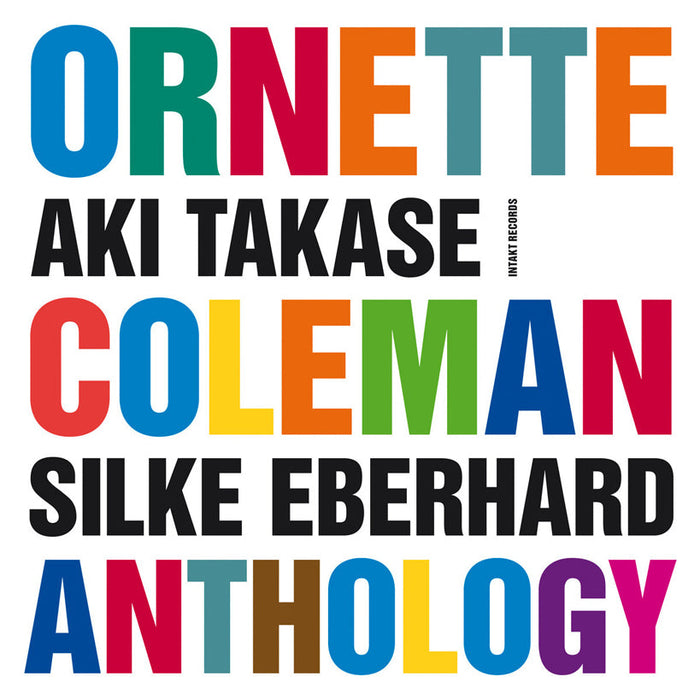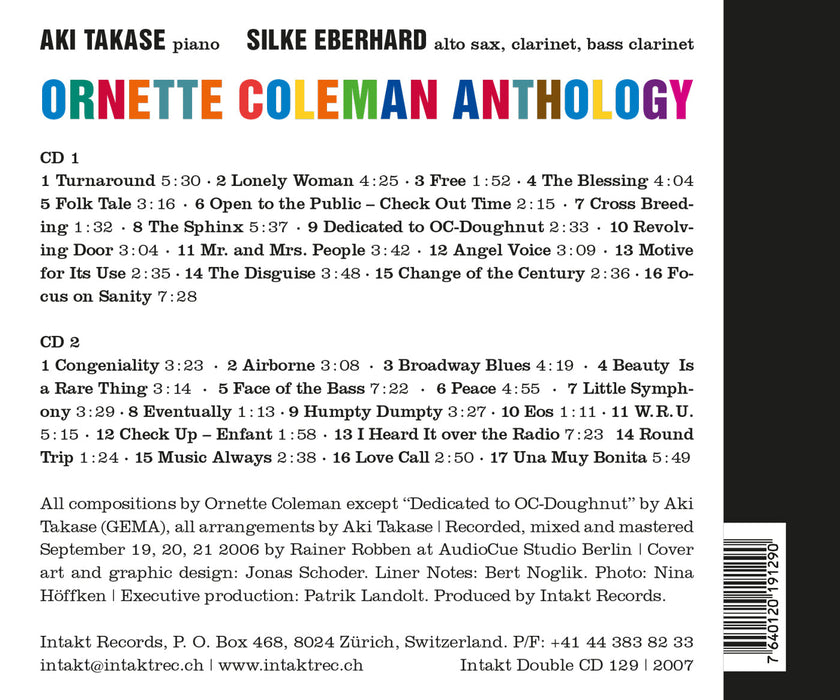
129: AKI TAKASE – SILKE EBERHARD. Ornette Coleman Anthology (Double Album)
Intakt Recording #129/ 2007
Recorded, mixed and mastered September 19, 20, 21, 2006 by Rainer Robben at AudioCue Studio Berlin.
Original price
CHF 17.00
-
Original price
CHF 39.00
Original price
CHF 39.00
CHF 17.00
-
CHF 39.00
Current price
CHF 39.00
More Info
Album Credits


